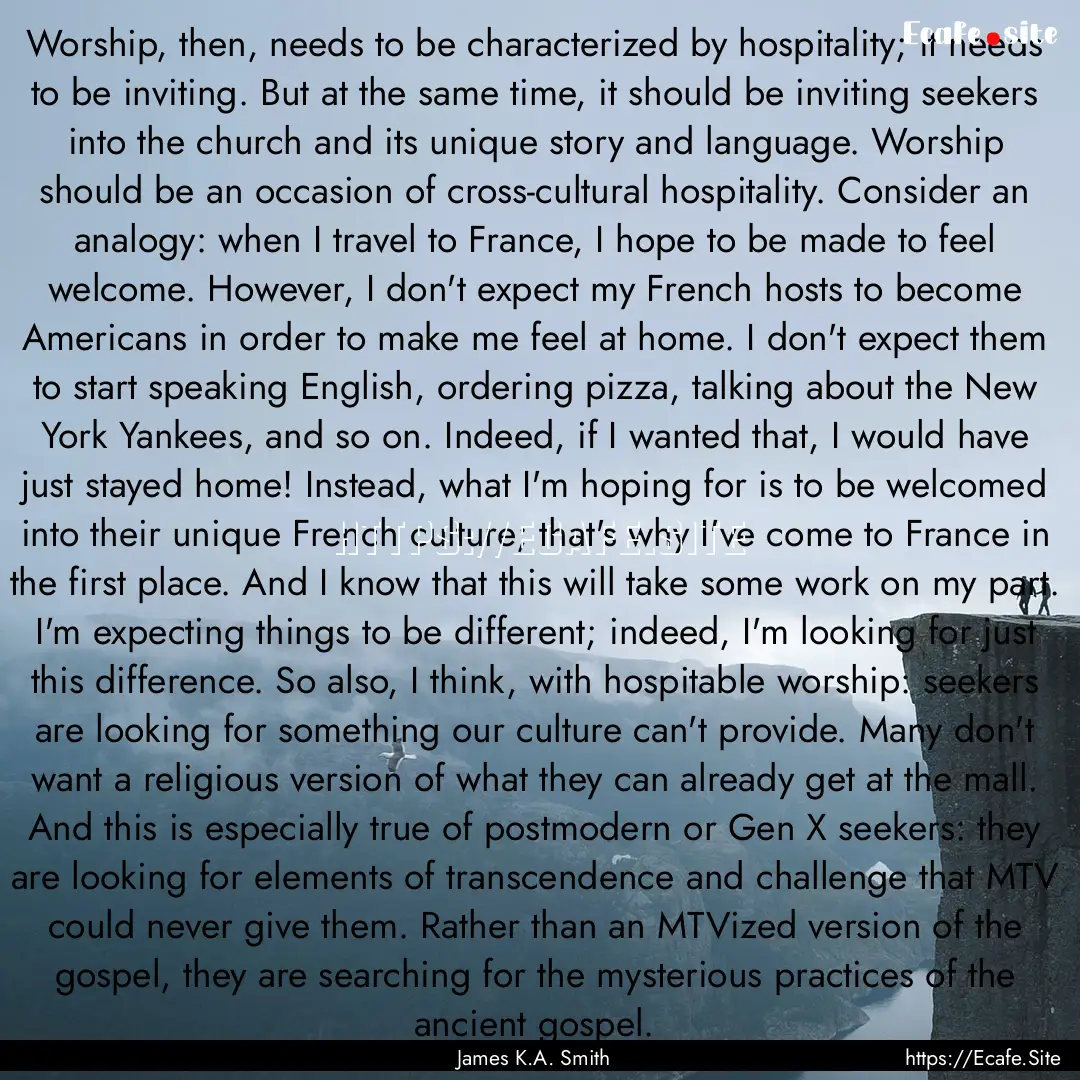
Report, if you have a problem with this page“ Worship, then, needs to be characterized by hospitality; it needs to be inviting. But at the same time, it should be inviting seekers into the church and its unique story and language. Worship should be an occasion of cross-cultural hospitality. Consider an analogy: when I travel to France, I hope to be made to feel welcome. However, I don't expect my French hosts to become Americans in order to make me feel at home. I don't expect them to start speaking English, ordering pizza, talking about the New York Yankees, and so on. Indeed, if I wanted that, I would have just stayed home! Instead, what I'm hoping for is to be welcomed into their unique French culture; that's why I've come to France in the first place. And I know that this will take some work on my part. I'm expecting things to be different; indeed, I'm looking for just this difference. So also, I think, with hospitable worship: seekers are looking for something our culture can't provide. Many don't want a religious version of what they can already get at the mall. And this is especially true of postmodern or Gen X seekers: they are looking for elements of transcendence and challenge that MTV could never give them. Rather than an MTVized version of the gospel, they are searching for the mysterious practices of the ancient gospel. ”

James K.A. Smith
From : Who's Afraid of Postmodernism?: Taking Derrida



